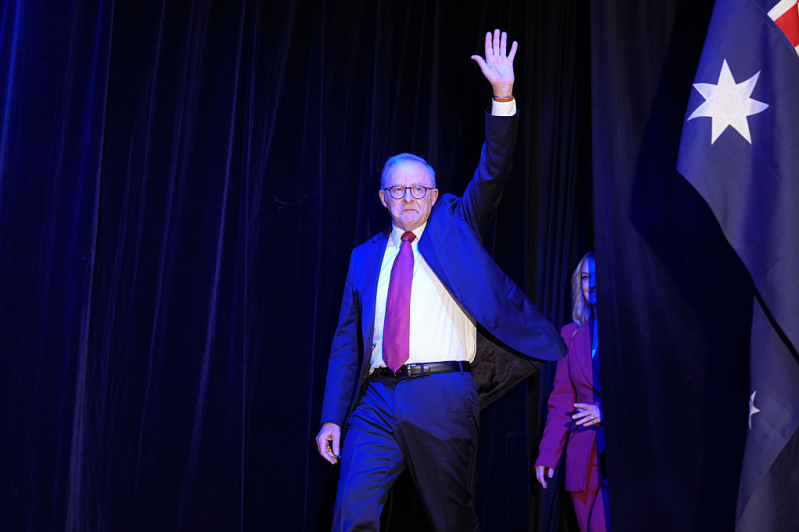
As Christians across Australia gathered in prayer this week for godly leaders and national wisdom, Prime Minister Anthony Albanese secured re-election Saturday, with his center-left Labor Party projected to win a parliamentary majority amid widespread voter concern over the cost of living, health care, and housing.
Opposition leader Peter Dutton, head of the center-right Liberal Party, conceded defeat and confirmed he had called Albanese to offer his congratulations. Early results indicate a nationwide swing toward Labor and away from the Liberal-National Coalition. Dutton also lost his own seat of Dickson in Queensland, further compounding the coalition’s loss.
“Aussie voters have spoken for fairness, aspiration, and opportunity for all,” Albanese said in a statement following the result. “In this time of global uncertainty, Australians have chosen optimism and determination.”
The Labor Party’s strong showing may eliminate the need for coalition negotiations, which Albanese had earlier ruled out. However, in the event of a hung parliament, a variety of independents and Greens candidates—who gained ground in several key races—could still influence the final shape of the government.
Key issues dominate voter sentiment
The Labor government’s emphasis on social stability, renewable energy, and equity in public services appealed to Australians frustrated with rising costs and conservative policy inertia, observers noted.
One of the more divisive topics on the political landscape—though less dominant this cycle—was the proposed revival of the Indigenous “Voice to Parliament.” The initiative, which stems from the 2017 Uluru Statement from the Heart, was rejected in a 2023 referendum that sought constitutional recognition of Aboriginal and Torres Strait Islander advisory powers. Critics, including the Australian Christians party, opposed Labor’s continued support for the idea.
“After a clear and democratic referendum, Labor still won’t listen,” the party wrote in a Facebook post during the campaign. “Trying to revive a failed, divisive proposal shows just how out of touch this government really is.”
Christians across the spectrum pray for the nation
In the lead-up to the election, Christian communities across Australia joined in prayer—not for any particular party, but for the future of the nation. The Australian Christian Lobby (ACL), in partnership with the Canberra Declaration and a range of church groups, hosted a federal election prayer meeting on May 1.
“We will pray for voters’ wisdom, godly leaders, and for truth and righteousness to prevail in our nation,” said Michelle Pearse, ACL chief executive officer, in an email invitation. “We won’t pray for a specific party or candidate, but for voters to have wisdom and discernment.”
Participants included leaders from Australia Prays, Family Voice, Church & State, and Archbishop Julian Porteous, among others.
Another faith-based political group, the Australian Christians party, ran candidates promoting policies such as defending life from conception, protecting religious education and speech, and supporting traditional families.
Record election turnout amid national reflection
The 2025 federal election was billed as one of the largest in Australian history, with both houses of Parliament partly dissolved on March 28 and early voting opening April 22. Most of the electorate cast their votes on May 3.
The electorate appeared to favor stability and values-driven governance, underscored by Albanese’s message of unity. “Australian people have voted for Australian values,” he said.
The decisive result hands Albanese a renewed mandate to tackle domestic challenges and navigate Australia through a complex geopolitical landscape. His Labor government is expected to prioritize climate action, economic fairness, and social inclusion.
Further analysis of final seat counts and preferences will determine the influence minor parties and independents may wield, especially in the Senate.






